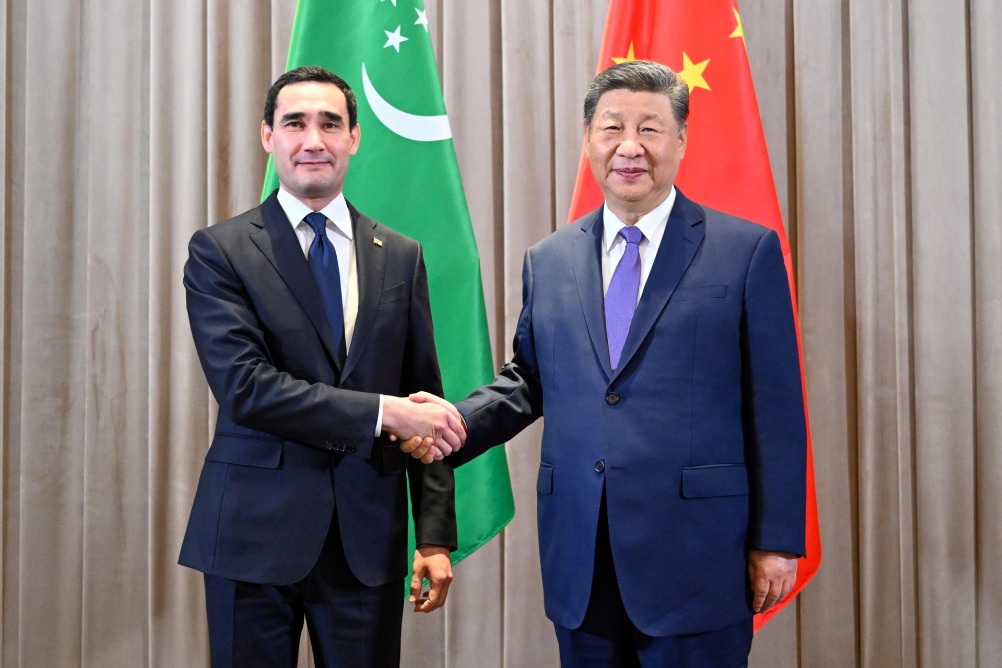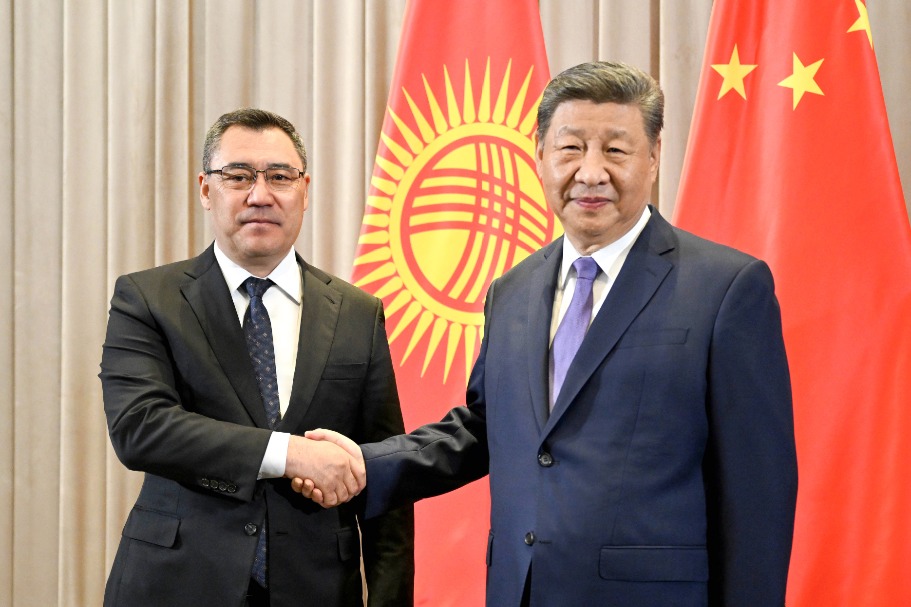Innovating financial sector vital for growth: China Daily editorial

As China embarks on a new chapter of economic modernization, a steadfast proactive stance toward financial innovation stands as a cornerstone for propelling future growth and prosperity.
It is China's consistent policy to continuously strengthen the resilience of the financial services sector while promoting its opening-up to expedite trade and investment and build a law-based and market-oriented business environment.
The 2025 Lujiazui Forum, which opened in Shanghai on Wednesday, has long been considered a window on China's latest financial reforms. This explains why this year's event — the forum's 16th edition since 2008 when it was launched — has received so much attention, as it is being held against the backdrop of increasing volatility in the global financial market.
How effectively China is able to enhance its high-level financial opening-up and improve its capacity in financial resource allocation is not only pivotal to its financial competitiveness globally, but also its ability to cope with the growing development challenges it faces.
Themed "financial openness, cooperation, and high-quality development amid global economic changes", the two-day forum is being attended by officials from financial regulatory agencies around the world, as well as leaders and experts in the financial and economic sectors.
In his keynote speech at the opening of the forum, People's Bank of China Governor Pan Gongsheng announced that the country will establish an international operation center designed to promote the internationalization of the digital renminbi and the development of financial market services, while supporting innovation in digital finance. The initiative underscores China's commitment to driving financial digitization and harnessing the transformative potential of digital currencies.
The center will boost China's efforts to steadily advance the renminbi's internationalization and make it more convenient for countries to use the Chinese currency in cross-border trade and investment. Currently, nearly half of all cross-border transactions conducted by Chinese financial institutions, enterprises and individuals are already settled in the renminbi.
The complex external situation has added a sense of urgency for China to speed up its pace of the renminbi's internationalization in a more innovative way. "Traditional cross-border payments infrastructure is easy to politicize, weaponize, and use for unilateral sanctions", Pan told the forum.
He added that China has built a multi-channel, wide-coverage cross-border RMB clearing network after more than a decade of development.
The RMB reserves of central banks worldwide have increased markedly in recent years, mainly due to the diversification trends of reserve assets and the inclusion of the RMB in the International Monetary Fund's Special Drawing Rights basket.
The share of the Chinese currency in the SDR basket has risen from 10.92 percent in 2016 to 12.28 percent in May 2022, reflecting the growing recognition worldwide of the renminbi as a key global reserve asset. And the Belt and Road Initiative has further facilitated the internationalization of the currency.
Despite the downward pressure, the Chinese economy's fundamentals and favorable conditions such as the huge domestic market, strong economic resilience and great growth potential remain unchanged. It is encouraging that, as reflected in the new measures announced at the forum, continued efforts are being made to advance China's high-standard financial opening-up and improve the financial sector's support to the real economy.
The planned establishment of the operation center for the digital RMB is one of eight measures that China plans to take to further open up its financial market and strengthen Shanghai's position as an international financial hub.
Other measures announced by Pan at the forum include establishing a transaction reporting repository for the interbank market, building a personal credit reporting agency, developing free trade offshore bonds, and promoting the RMB foreign exchange futures trading in collaboration with the China Securities Regulatory Commission.
These initiatives signal a shift toward greater openness, innovation and efficiency in China's financial ecosystem. They underscore China's strategic focus on balancing economic resilience with openness amid the rising geopolitical uncertainty and evolving global financial dynamics.
- National Bank of Uzbekistan: a key institution in deepening investment cooperation with China
- UK financial official: China's economy on positive track, cooperation brings mutual benefit
- China remains committed in solidarity with African countries
- Foreign institutions key to China's modern financial system
- China to set up international operation center for digital yuan

































